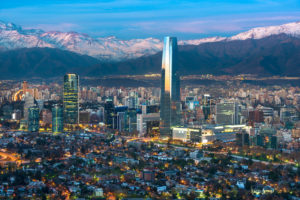China’s Administrative State Is Both a Blessing and a Curse
China’s approach to regulatory law has both helped and hindered the government’s response to COVID-19.
Identifying Agency Leaders
The federal government can and should do a better job of making basic information about high-level officials easily available.
Acting Officials and Delegated Authority
Agencies should promote transparency about vacant and acting positions by making information publicly available.
Politics, Prosecutors, and Procedural Fairness
President Trump contravenes fundamental fairness by exerting political pressure over prosecutors.
Chile’s Political and Institutional Response to COVID-19
Expanded executive power presents challenges to plans for constitutional and political reform.
Why Brazil’s COVID-19 Response Is Failing
In Brazil, a political crisis rages between federal and state governments as coronavirus cases keep rising.
What Makes an Emergency?
Curbing executive overreach requires a clear definition of “emergency” and limits on powers used to respond to crises.
Singapore’s Regulatory Response to COVID-19
The pandemic appears tailor-made for Singapore’s managerial and interventionist style of governance.
Delegation’s Critics Should Be Careful What They Wish For
The history of the intelligible principle test warrants caution in reviving the nondelegation doctrine.
Soft Regulation and Hard Compliance in Taiwan
The secret to Taiwan’s successful fight against COVID-19 is its people, not its government.
The Need for Global Protections Against Existential Risks
International collaborative mechanisms are needed to prepare for threats to human existence.
Did Japan’s Lenient Lockdown Conquer the Coronavirus?
Despite federal attempts to fight COVID-19, Japanese law prioritizes individual rights and regional autonomy.












